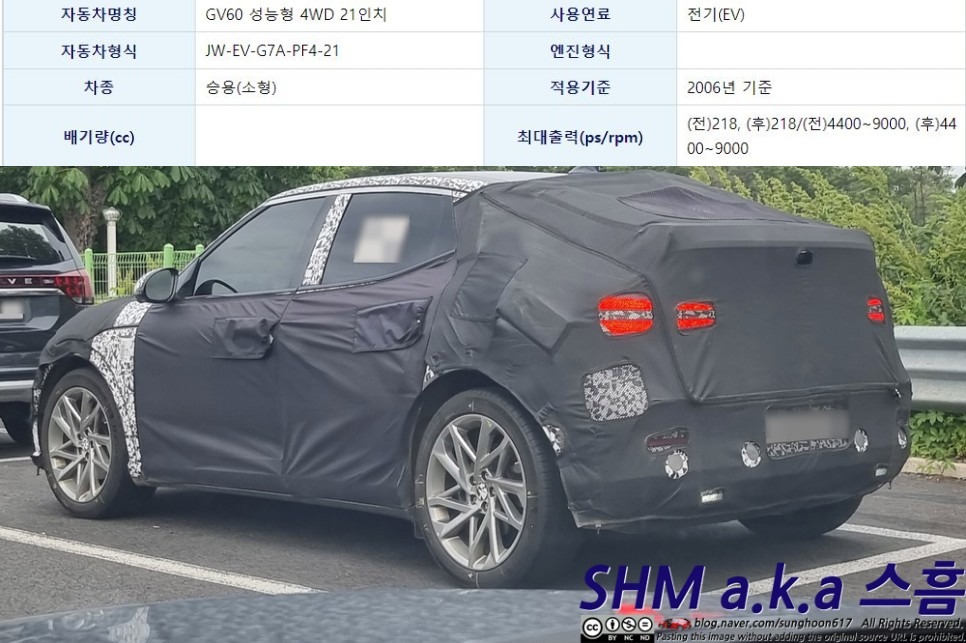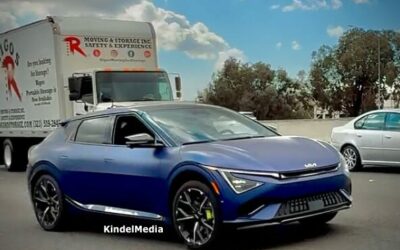Thanks to our colleague SHM Studio we have noticed that Genesis GV60 is about to be released, after passed through Korea Emission & Noise Certification revealing at the same time some of the specs of Genesis first dedicated electric vehicle.
The Genesis GV60 was expected to hit the showrooms at the second half of this year and now after the model passed the Emissions & Noise test we could expect a debut within the coming weeks (it usually takes a week since the specs are revealed).
Based on the same platform (E-GMP) as the Hyundai IONIQ 5 and the Kia EV6, the Genesis GV60 will not only stand out through its different design but also by delivering a more powerful battery and an increased motor performance.
That was what was said, but apparently the final output won’t reach the Kia EV6 GT that has 586 hp. According to the documents of KENCIS, the so called “GV60 performance type” (pictured below) has dual motor (218 hp each), All-Wheel Drive and 21-inch alloy wheels. Total output is 436 hp.
The high-performance GV60 will have 436 hp from front & rear motors
Codenamed as JW, the GV60 is brand’s first dedicated electric vehicle and will also have another two variants. The Genesis JW EV base version will have the same output as Kia EV6 Long-range model. Rear-Wheel Drive and 229 ps. Both the EV6 and the IONIQ 5 had a base version with only 170 hp.
And the last model that passed the certification is the GV60 AWD Long-range model. With a maximum output of 325 hp (100 hp from the front axle and 218 hp from the rear) this could be calificated as the one in the middle. The battery capacity is not mentioned, but we think it will be the same as the Kia EV6 or slightly larger. Also the weight, compared to the Kia EV6, is around 50 kg higher for the GV60.
The Genesis GV60 electric was developed with a focus on the reinterpretation of luxury EVs, and it is expected that innovative UX will be implemented (you already have seen a sneek peak of the interior), such as applying the latest function upgrades through enhanced connectivity services and new biometric technologies that enable communication with the driver.








